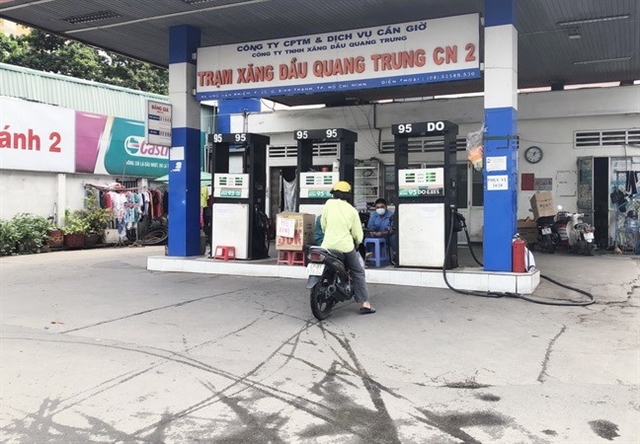 Economy
Economy


|
| A closed-down fuel station seen last year in HCM City. VNA/VNS Photo |
HÀ NỘI — The Ministry of Industry and Trade (MoIT) has called for the government to loosen control on fuel prices, leaving suppliers and retailers to set the prices based on the global oil market and their cost of operation.
"The idea is to bring it as close to market prices as possible by reducing the government's control and covering operational costs by suppliers, and retailers are covered to ensure a stable supply for the market," said a representative from the ministry.
He added the government would still keep a close watch on prices, and suppliers must report to MoIT and the Ministry of Finance (MoF), the country's joint authority on fuel management, if prices are to be adjusted.
MoIT also called for the fuel price cycle to be shortened from 10 days to 7 days, on Thursday every week (except for public holidays). The ministry said a shorter price cycle would allow domestic prices to stay more in tune with global and regional levels, reducing the risk of drastic price changes in the future.
Another proposal by the ministry was to allow retailers to buy from a maximum number of three suppliers to grant them more operational flexibility, especially those with large station networks.
The ministry's proposed changes aimed to fix several issues that resulted in fuel shortages across the country last year. Suppliers and retailers have long voiced their grievances over many shortcomings and limitations in fuel management.
Several issues, however, remained unaddressed, said industry experts.
For example, there was still no minimum bonus set for retailers restricted to only purchasing from certain suppliers. Retailers suffering continuous losses for an extended period of time were a key contributor to the country's fuel shortage last year.
Experts said that lacking incentives to sell while having too few options for suppliers were among the most pressing concerns for retailers, who said they were often forced into entering long-term contracts without receiving proper compensation.
Retailers being given additional options will likely force suppliers to increase their bonuses, creating a more fair and competitive market environment.
On the other hand, MoIT said the limit was designed to monitor better fuel origin and quality under current laws and regulations.
Last year, MoIT asked the government to transfer the management of fuel prices to the MoF, which according to experts, may prove impractical.
According to Dr Đinh Trọng Thịnh from the Vietnam Academy of Finance the industry's operation is in nature commercial, which involves import/export activities and working with suppliers and, therefore, should fall under the MoIT's responsibility. VNS




